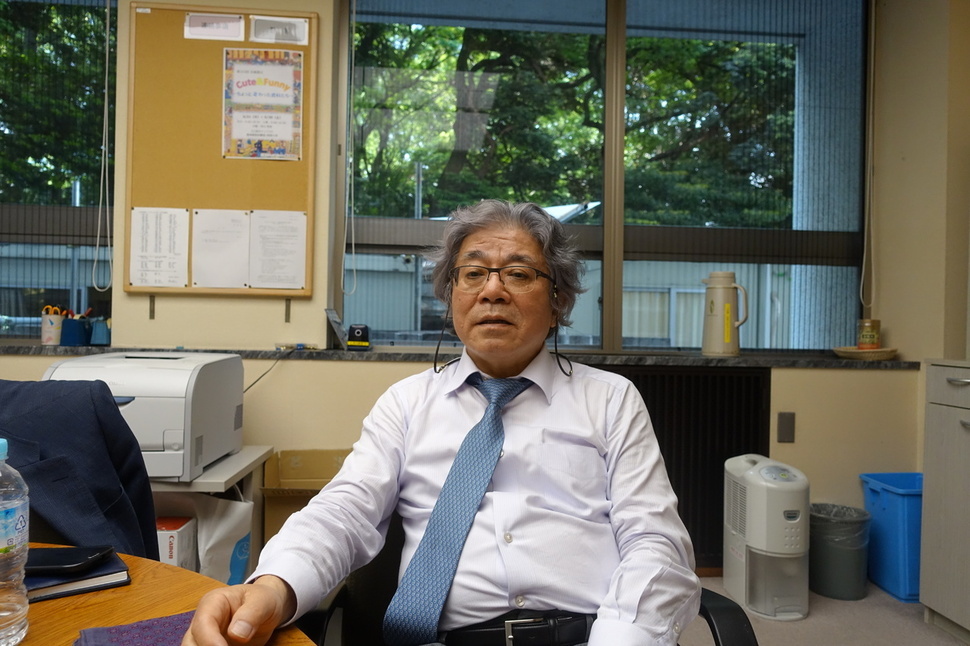 |
|
Masao Okonogi, a professor emeritus at Keio University and a Japanese expert on Korea
|
Abduction of Japanese citizens could be a factor in North Korea-Japan dialogue
Following the agreement to hold an inter-Korean summit and North Korea’s expression of its commitment to denuclearization, Masao Okonogi, a professor emeritus at Keio University and a Japanese expert on Korea, said that if progress is made on North Korea-US dialogue, Japan will have no choice but to play along. During a telephone interview with the Hankyoreh on Mar. 7, Okonogi said that the issue of North Korea’s abduction of Japanese citizens could be a factor in North Korea-Japan dialogue. Hankyoreh (Hani): What do you think is the reason that North Korea is eager to engage in dialogue after continuing to test nuclear weapons and missiles? Masao Okonogi (Okonogi): North Korea’s plan all along has been to shift to dialogue this year after declaring the competition of its nuclear force as part of its policy of brinkmanship. At the same time, I think that the economic sanctions have also succeeded at putting pressure on the North since last fall. Hani: What movements will the Japanese government make? Okonogi: Japan’s basic policy is that it’s necessary to keep applying maximum pressure to North Korea. But there are limits to Japan’s influence. If the Trump administration moves to accept North Korea-US dialogue, Japan will have no choice but to follow suit. For now, Japan will be obliged to keep an eye on North Korea and the US’s movements as it continues to strongly counsel the US and South Korea to be prudent about dialogue. But Japan also has the issue of the abductions. If North Korea were to propose normalizing relations with Japan in a way that would include resolving the abduction issue, Japan would find it hard to refuse, because Japan needs to deal with that issue, too. Hani: What’s the minimum conditions under which Japan could accept dialogue with the North? Okonogi: The Japanese government is worried that the US is only thinking about itself. If the US negotiations only cover North Korea’s intercontinental ballistic missiles and intermediate-range ballistic missiles, Japan will be forced to enter its own negotiations with the North. The Abe administrations thinks that the North Korea-US negotiations need to result in North Korea’s missile range being limited to southeast of the Korean Peninsula. If Japan doesn’t get its way, then its security position will be weakened. The Trump administration can no longer avoid taking part in talks with the North. If it refuses to do so, it runs the risk of making enemies of both North and South Korea. North Korea has made an effort to build close relations with the Moon administration, and now it could do anything to get Trump’s attention. By Cho Ki-weon, Tokyo correspondent Please direct questions or comments to [english@hani.co.kr]





